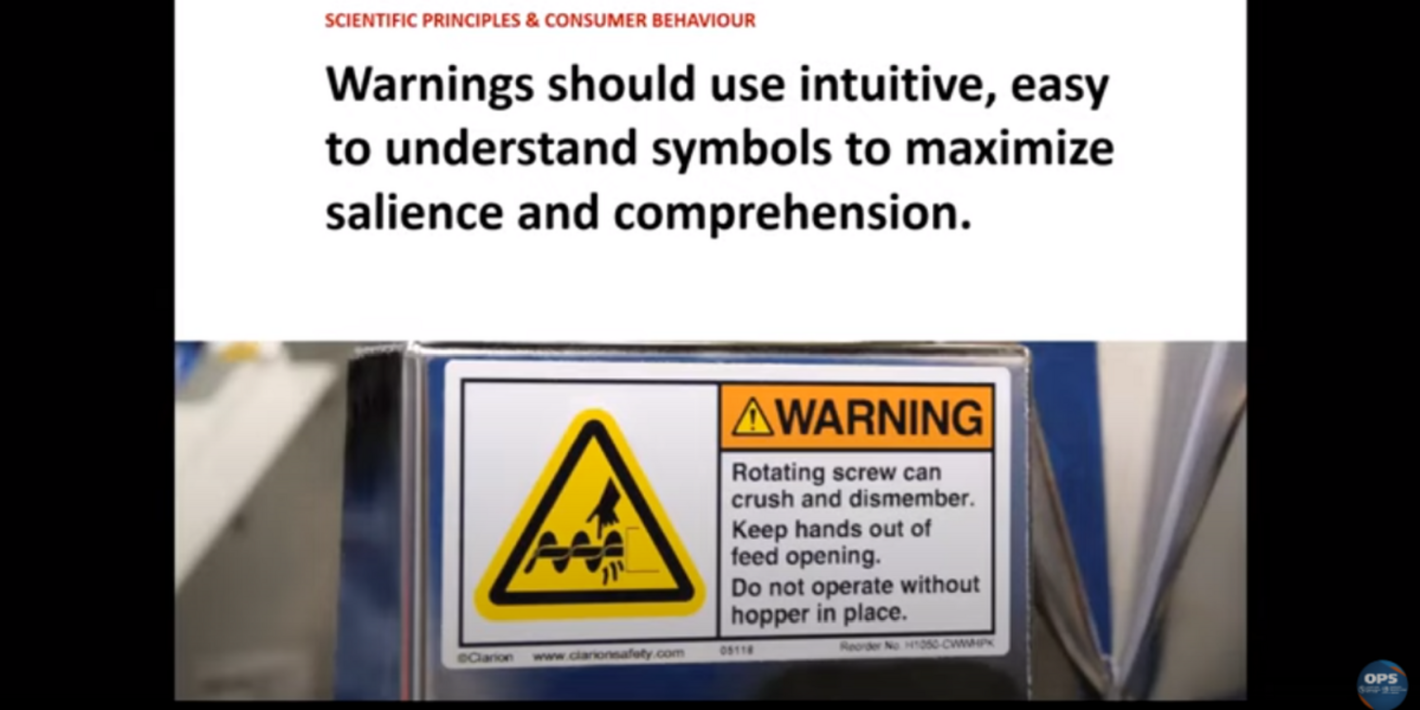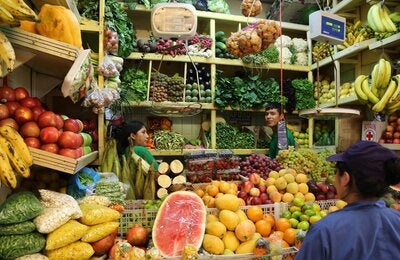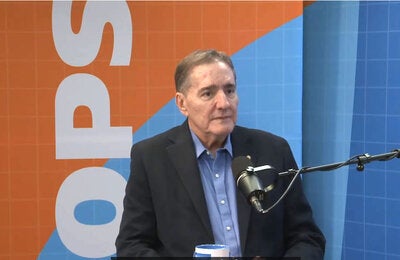
Bridgetown/Washington D.C., 11 November 2020 (PAHO/WHO) – Several regional and international experts came together in a virtual webinar on November 9 to discuss the need for the implementation of front-of-package labeling (FOPL) as a right to health for citizens of the region, and noted that the logical choice of system should be based on the extensive scientific research already conducted on the topic.
The discussion comes against the backdrop of the 2018 endorsement of CARICOM Heads of Government of FOPL at its 39th Regular Meeting of the Conference of Heads of Government. Since then, the CARICOM Regional Organization of Standards and Quality (CROSQ) and National Bureaus of Standard in most Caribbean countries hosted stakeholder meetings to obtain feedback from consumers for the revision of the (2010) CARICOM Regional Standard for Specification for labelling of pre-packaged foods (CRS 5:2010), to incorporate FOPL specifications.
The discussions focused on the Statement of the UN Special Rapporteur on the Right to Health on the adoption of FOPLs to tackle noncommunicable diseases (NCDs) released by the UN Special Rapporteur, Dr. Dainius Püras in July 2020. The webinar, hosted by the Pan American Health Organization, included the CARICOM Secretariat, the Caribbean Public Health Agency, the United Nations Resident Coordinator’s Office for Barbados and the OECS, the Healthy Caribbean Coalition (HCC) and the University of the West Indies (UWI).
Front-of-package warning labelling represents a key component of a comprehensive strategy to promote healthier lives, as it enables consumers to identify in a quick, clear and effective way, products high in sugar, sodium, saturated fats, trans fats and total fats, the critical nutrients associated to the NCD burden in the Caribbean.
“Labels should feature images that are simple and intuitive. This ensures that they are noticed and understood at a glance,” said David Hammond, Professor and CIHR Applied Chair in Public Health in the School of Public Health and Health Systems at the University of Waterloo, Canada. “Octagonal FOPL are the most effective for informing
consumers and helping them to reduce the intake of foods high in nutrients of concerns. That is largely because the octagon uses the well-established symbol of a stop sign, which is universally recognizable regardless of language, culture or literacy level,” he revealed.
The current CARICOM draft standard includes parameters that meet the highest level of excellence, including the octagon-shaped warning system and a nutrient profile model that meets dietary recommendations of the World Health Organization (WHO).The octagon-shaped warnings are supported by extensive scientific evidence, unlike other suggested FOPL systems, including the magnifying glass. This solid evidence base is critical in order to withstand any potential legal challenges.
“The availability and accessibility of healthier food options is part of the right to health. Citizens also have the right to access the information and awareness about the health risks presented by unhealthy foods,” said Anand Grover, Former UN Rapporteur on the Right to Health. “States have an obligation to respect, protect and fulfil the right to health, by introducing regulations and protecting the right to health from interference by private sector corporations,” he added.
Coordinator of the Caribbean Subregional Program at PAHO, Mrs Schutt-Aine shared her hope that Caribbean people could start to benefit from the proposed CARICOM standard region-wide very soon. “To date, the Caribbean population still does not have access to clear information on whether a product is excessive in sugars, sodium, saturated fats, trans fats or total fats,” said Mrs Schutt-Aine.
And the CARICOM Secretariat is aware of their role in this process. “Our responsibility is to convince policy makers that it is in their interest and their communities’ interest to facilitate, in conjunction with other measures, so that the regulations of the application of FOPL will have a desirable impact on the region’s health and development,” noted Dr. Douglas Slater, CARICOM Assistant Secretary-General, Human and Social Development.
However, the food and beverage industry continue to oppose front-of-package warning labelling regulations in the region, according to Maisha Hutton, Executive Director of the HCC, who shared civil society’s perspectives about the process. “Without question our greatest challenge has been interference from the private sector. The Food and Beverage sector in the Caribbean, supported by the wider private sector, is extremely well coordinated, well mobilized, well-resourced and they have strong political influence and lobbying power. In fact, very recently, the CARCIOM Private Sector Organization was recognized by Heads as an Associate Institution of the Community and so this strong connection between the industry and policy making has created a situation where most of the interfering is behind the scenes and makes it very challenging for advocates to expose and to counter,” Mrs Hutton explained.
The impact of NCDs has been further aggravated by the COVID-19 pandemic, as persons living with NCDs face an increased risk of severe illness and death from COVID-19. The pandemic therefore has made it even more important to accelerate implementation of FOPL in the Caribbean as a tool to protect consumers. In response, Sir George Alleyne, PAHO Director Emeritus, encouraged participants to “use the rights-to-health framework to mobilize collective action and a united public health front”.
Dr. Joy St John, Executive Director, CARPHA, noted that how the Heads of Government, the Ministers of Health and Chief Medical Officers have come together, proactively, to work on COVID-19 shows the appetite for collective action. If it is possible for COVID-19, it’s very possible for NCDs and FOPL.”
Highlighting the need to tackle the health challenges being faced by the Caribbean frontally, proactively and within a right to health framework, the United Nations Resident Coordinator, for Barbados and the OECS Mr Didier Trebucq remarked that “the UN Sub-Regional Team supports ongoing efforts by regional Governments and regional institutions. We have adopted a coalition type of approach to fight this battle, involving PAHO/WHO, UNICEF, FAO, OHCHR amongst others. We therefore pledge our full support and urge regional Governments to intensify their efforts to implement regulation of front-of-package warning labelling.”
Media contact:
Lisa Bayley: + 1 246 233 8534 | bayleylis@paho.org



